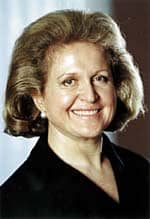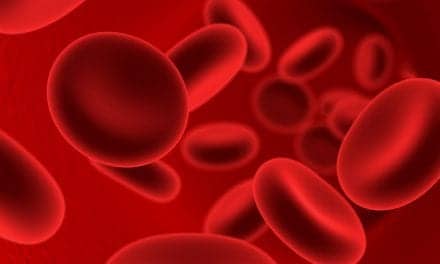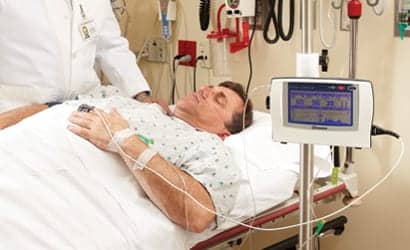A self-proclaimed “credential geek” offers reasons why she believes every practitioner should get an RRT credential.

The second experience happened this past summer. I had the opportunity to attend an asthma workshop cosponsored by the American Association for Respiratory Care (AARC) and the US Environmental Protection Agency. A colleague and I sat at a table of 10. As I looked around, I noticed we were all very similar in age—all “40 somethings”—and mostly women. I then noticed our name badges—eight CRTs and two RRTs. I wondered if the eight others were all recent graduates. Maybe respiratory care was a second career for them. I am sorry to report they were not recent graduates. Most had been in the field a considerable amount of time. The workshop was great, but the reality of minimal professional investment bothered me.
I am a self-proclaimed “credential geek.” Some may say I am a “credential snob.” I do not apologize for setting high personal standards. I graduated from a registry respiratory care program in 1978. My parents expected me to get registered, my program director expected me to get registered, and, most important, I expected to get registered. I was registered in 1979. I worked as an RRT in large acute care hospitals until 1983. I worked side by side with some excellent certified technicians; many later continued their education and became registered.
Later in my career, I became an educator. As I found myself teaching different specialty topics, I felt credentialing in these areas was important. When I began teaching pulmonary function testing, I studied for and earned the credential of RPFT. I felt having that credential demonstrated that I had the knowledge and skill to teach the subject matter. I did the same when I was teaching newborn and pediatric clinical rotations. I studied for and passed the neonatal pediatric examination. I then felt confident that I should and could teach in this specialty area.
So, yes, I have all of the credentials offered by the National Board for Respiratory Care. I am proud to say that I have demonstrated to myself and to others that I have professional commitment and that I have the expertise to do what I do in the field of respiratory care.
Excuses, Excuses
I do not understand why people do not become all that they can be. I do not understand why someone would work hard to complete an advanced-level respiratory care program and then would not fully document their knowledge and ability by getting the RRT credential. In my 25 years in the respiratory care profession, I think I have heard just about all of the excuses given for not taking the registry examination, among them: “The exams cost too much”; “My department director does not expect it or pay for it”; “The pay increase I would get is not that much to make it worth the effort”; “I am only going to be in the field a few years”; “The RRT examination pass rates are too low”; “Nurses get all the credit, it does not matter if I have the credential”; “I am too busy to study”; “I do the job, I don’t have to prove it to anyone else”; “I just do not have the time—it is not a priority.”
I think every respiratory therapist should earn the RRT credential. I simply cannot comprehend why someone would be satisfied with an entry-level credential that demonstrates a minimum level of competency. I would refer all of those readers who fit into this category to the “politically correct” AARC white paper on the RRT credential. It says “a graduate of an advanced-level program who does not complete the examinations to earn the RRT credential has not documented that he or she had actually acquired the knowledge and skills necessary to practice as an advanced-level therapist.”1 I agree with this statement completely. The paper encourages all respiratory therapists to earn the RRT credential as a standard of excellence. It encourages employers to implement ways to recognize and compensate therapists that hold the RRT credential. The paper does a good job of explaining the personal and professional benefits of the advanced-level credential. If you are registry eligible and have not earned your RRT, read the white paper. If you are a department manager and have employees who are CRTs and eligible to take the RRT, read the white paper.
I take great personal satisfaction in the fact that I earned the RRT credential. I know that I have successfully demonstrated the knowledge and skills of a specialized health care provider. I know in my heart and in my mind that I am a true professional.
In addition, because I was compensated financially for getting my RRT in a career that has spanned 25 years, I am glad I invested early. Over the years, the financial rewards have more than paid for the “expensive” examinations. I have always felt equal to other credentialed health care providers. I have documented my ability though a rigorous credentialing process just as they had done for their profession. I have felt respected by other health care professionals for what I have accomplished and for what I can do. I have never felt that someone else gets the credit. I have earned the credit and professional respect for my area of expertise. I continue to take self-assessment examinations and participate actively in continuing education opportunities.
Yes, I am a “credential geek.” At the end of the day—and, I hope, at the end of my career—I will know I was at the top of my game. I delivered good patient care, I educated others, and just maybe I encouraged someone to earn their RRT and strive for professional and personal excellence.
After all, if I told you I trained for a year or two to run the Boston Marathon, and showed you a certificate of completion for a marathon exercise program, but told you after running the first 14 miles of the race at record pace, I stopped because I knew I could finish…what would you think? Would you call me a marathoner or a quitter? Earning the RRT credential is like running a marathon. It takes a plan of study, clinical practice, and personal determination. Go for it. It is worth the effort.
Karen A. Milikowski, MS, RRT-NPS, RPFT, is Respiratory Care Program Director and Health Careers Department Chairperson at Manchester Community College in Manchester, Conn.
Reference
1. American Association for Respiratory Care Web site. Available at: www.aarc. org/resources/rrt_credential/. Accessed February 2, 2004.










